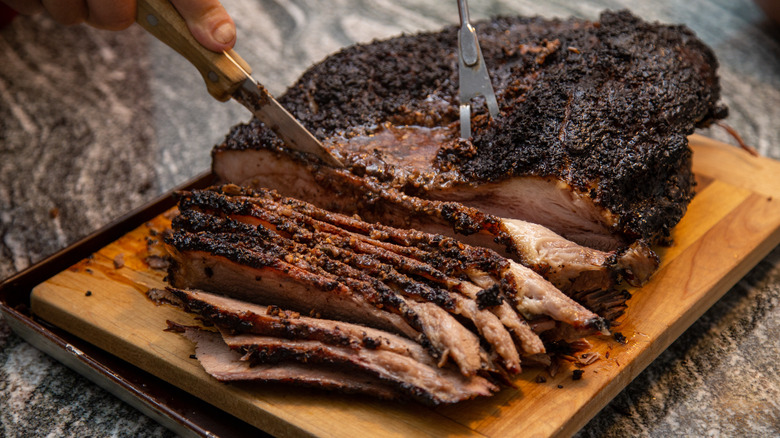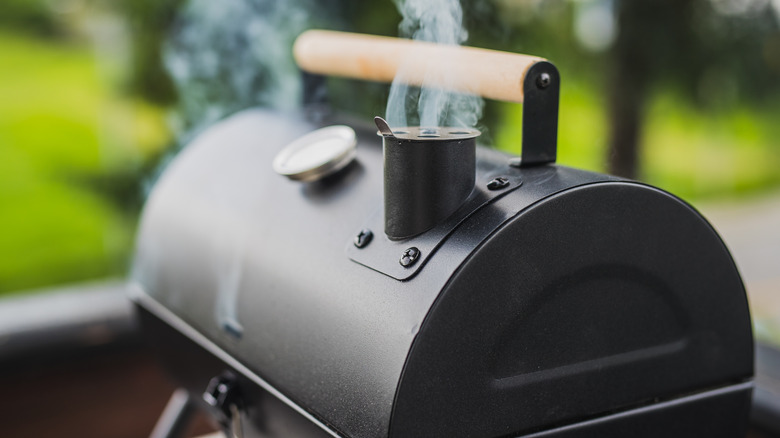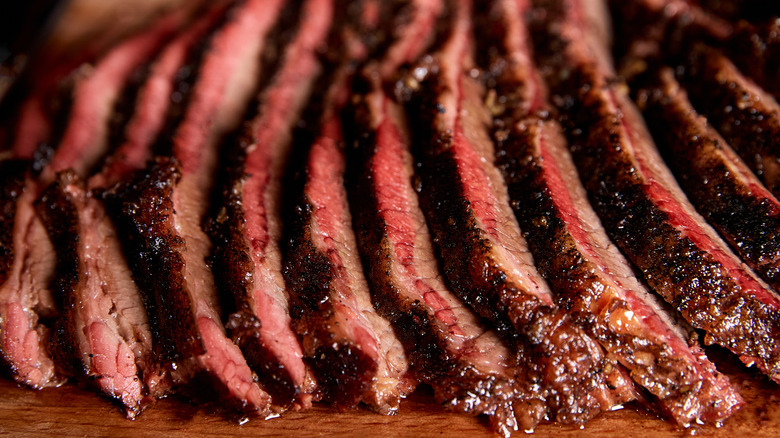The Real Reason Brisket 'Stalls'
Sitting out in the sunshine, sipping a cold beer, and enjoying some COVID-approved outdoor companionship may seem like an ideal time to cook a dish that mainly requires that you let it sit. That being said, you will need to do just a little bit more than that. Get out your food thermometer, because, finally, you have another use for it beyond cooking Thanksgiving dinner. Now if you're a person who regularly uses that little guy (Good for you!), you probably know where this is going; your lovely, unattended, hands-off dish that lets you entertain without having to choose between host or cook has stopped heating.
As summer approaches and we dig out our sandals and dust off our grills, some of our more adventurous grillers might look beyond caramelizing pineapple rings and sliced poundcake. Instead, they might go for something more advanced: the perfect smoked brisket. If you're planning to spend a summer Saturday bringing Texas BBQ to your own backyard, you'll need to do a little more than just carve out a big chunk of time.
Stalling theories
What many aspiring grill masters will experiencing is stalling. This process happens with large cuts like brisket or pork butt hit between about 140°-160° F and just stop heating. Then stays there, for hours. According to one Smoked BBQ Source writer, for as many as ten hours, but generally more along the lines of four to six. While stalling can occur while cooking brisket using almost any method, barbecuing and smoking see the worst of it (per Cook's Illustrated).
Several common theories behind brisket stalling seem to revolve around collagen. According to BBQ Host, collagen breaks down at around the same temperature window as the stalling process. Some think the collagen converting to gelatin causes the stall, a theory written about by Thermo Works. That the collagen melts, or that fat melt in general causes the cooking to stay at a standstill are other popular theories. Grill producer Weber even speculates that the muscularity of the cut is what makes brisket so finicky to cook.
The Blonder discovery
However, scientist Professor Greg Blonder of Boston University set out to find out once and for all what exactly causes this puzzling (and potentially frustrating) phenomenon. In his blog Genuine Ideas, he explored why brisket stalls in a scientific manner.
What he found was a simple answer: evaporation. Basically, the meat is sweating in your smoker (or even in your oven) just like your body would sweat in a dry sauna. I.e. profusely. As the liquid evaporates from the meat's surface, the surface temperature cools, a process technically called "evaporative cooling" by Meathead's Amazing Ribs. Thankfully, there's an easy solution. The meat sweats can be sidestepped with what Smoked BBQ Source calls the Texas crutch. What this process entails is simple; wrapping the brisket in aluminum foil. A little extra precaution can help avoid stalling your brisket indoors as well.
If you can conquer the brisket, you can conquer nearly any other meat. With your newfound understanding of stalling and why it happens, you could be able to make a delicious brisket you will love!


